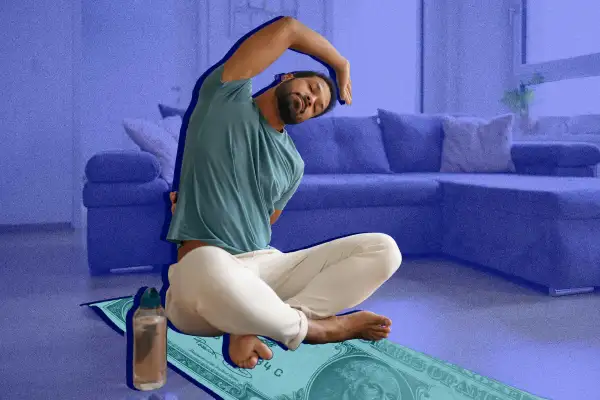There's Still Time to Financially 'Lock in' Before 2026. Here's How

Across the country, young adults are staying in, exercising and drinking water as part of the Great Lock-In of 2025, a viral self-improvement sprint through the end of the year. The idea is to block out distractions and hyper-focus on healthy habits before 2026 begins.
But if you're participating, don't forget to add a financial element.
"Starting small and creating change isn't easy, but there's still plenty of time to work with the last few months of the year," says Felicia Wong, founder of Aventurine Planning. "Everyone has to start somewhere."
The Great Lock-In doesn't have to be a complete overhaul of everything you know and love. You can simply use it as an opportunity to check in on your financial situation — your savings balances, spending habits, debt levels, investments — and reset as needed.
Although self-improvement can be hard, participating in a trend like this can be a way to hack your attitude toward otherwise-undesirable tasks, says Timothy Klecker, goals coach at U.S. Bank.
Take the dreaded task of budgeting, for instance.
"If you think, 'Well, I have to adopt a budget, and I'm going to have to do it forever,' you're probably not going to want to do it. Sounds awful, right?" Klecker says.
But if you approach it with a mindset of "I'm going to master this within a specific timeframe, and I'm going to kick its butt," budgeting suddenly feels a lot more achievable.
Breaking larger financial goals down into smaller steps can help you stay motivated. Wong says if you want to take a vacation next summer, maybe aim to set aside a specific amount of money for that trip by the end of each month. If you want to cut down on everyday expenses, consider declaring a deadline to negotiate your internet bill.
"Set goals and habits around what is fulfilling and sustainable. Financial habits are about being consistent over the long term," says Wong, who is also a certified financial planner.
Michelle Riiska, senior financial planning product and research consultant for eMoney Advisor, suggests starting with something like your emergency fund. Although the end goal is to save three to six months of essential expenses, you can build up to that by putting away a few thousand dollars before January to reduce your chances of needing to take on extra debt in a crisis.
You may even be able to combine some of your lifestyle and financial upgrades.
While you're trying to eat healthier, for instance, you could set a cap on your Uber Eats spending. While you're trying to cut back on mindless shopping, you could delete the Amazon app from your phone. You get the idea.
Klecker adds that even just testing out a behavior can pay dividends — as long as you're crystal-clear on the outcome you're ultimately hoping for.
Going cold turkey for a few weeks only to return to old habits the second the clock strikes midnight on New Year's Eve won't result in long-term change. For these adjustments to stick, your goals need to stretch beyond the end of a lighthearted TikTok challenge.
With discipline, Klecker says, you'll come out on the other side of the Great Lock-In having seen how valuable (and painless) the experience was. You'll also have proven to yourself that you can do it.
"It's the perfect framework to commit your time, your energy and your focus toward something, and then let the evidence show it was worth your time, energy and focus by the results," he adds.
More from Money:
Which Money 'Rules' Can I Safely Ignore?
Why 'Girl Math' Can Actually Make a Lot of Sense for Your Money
